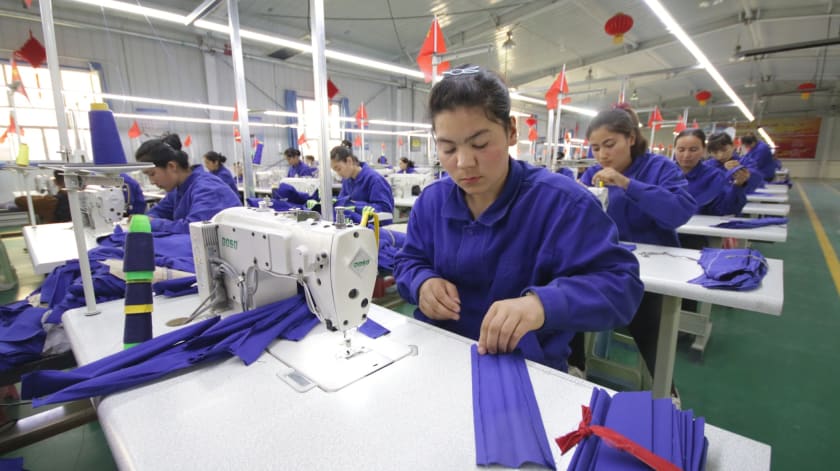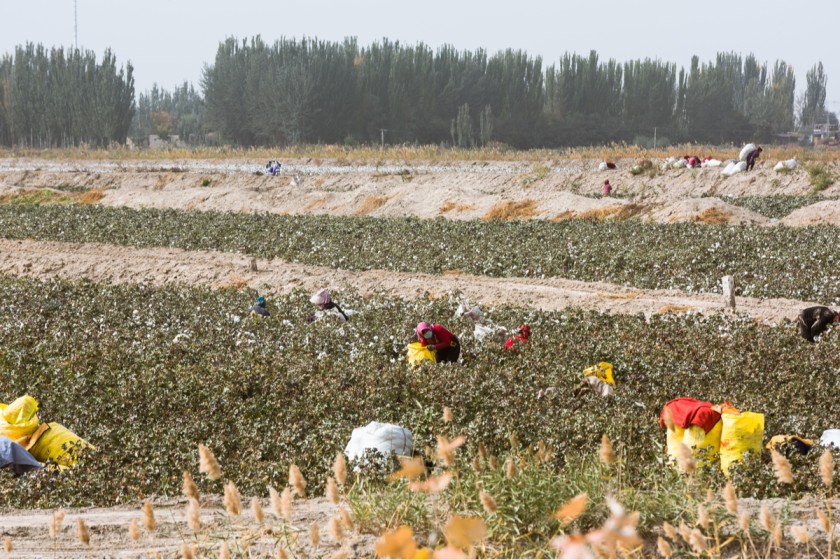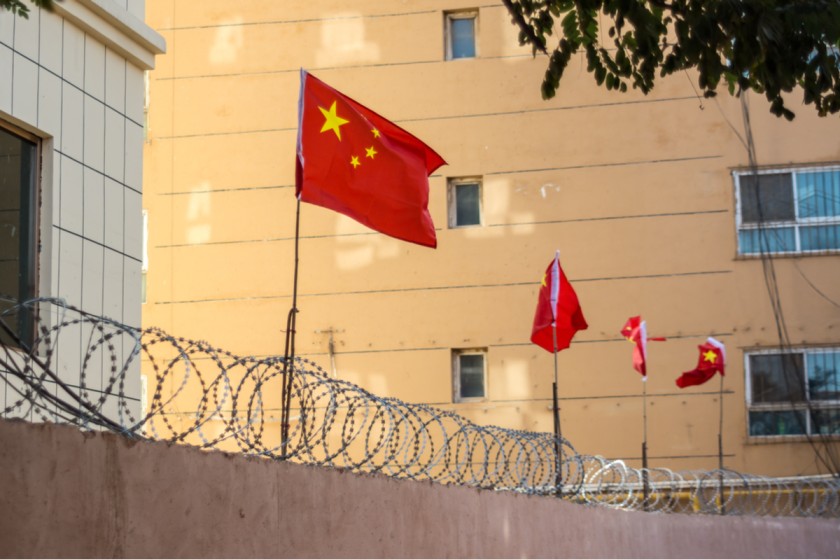Xinjiang Bill: What It Is & How It Impacts the Fashion Industry



The US government recently passed a bill which bans all imports from China’s Xinjiang region. The passage of this bill escalates tensions between the United States and China. It also impacts the global fashion industry and its supply chains. How fashion brands and manufacturers will be affected by US-China trade relations this year remains to be seen.
What is H.R. 6256?
In December last year, the US government passed ‘The Uyghur Forced Labour Prevention Act’ (H.R. 6256). This bill, in effect, assumes that all imports to the US from the Chinese Xinjiang Uyghur Autonomous Region (Xinjiang) are created using forced labour. Therefore, H.R. 6256 bans all imports from the Xinjiang region. (The term ‘imports’ here is defined as all goods–whether they be raw materials or finished goods.)
H.R. 6256 was originally passed by the US Senate in August last year. Following discussions and revisions, the bill was passed by the House of Representatives and signed off by President Biden in December.
Is There an Import Exception?
Yes. The ban on imports is not a total ban. The bill creates a “rebuttable presumption” clause for Xinjiang goods. In other words, the U.S. government now assumes by default that goods from Xinjiang were created using forced labour. Importers must prove that their goods were not created using forced labour. If US authorities accept the proof, they will issue a waiver and allow the import.
The bottom line is that importers must invest more effort and time to import Xinjiang goods into the U.S. This may not be economically feasible for many fashion brands and manufacturers.
Why was the bill passed?

The Xinjiang region of China is one of the key producers of cotton in the world. In recent years, evidence of abuse of Ughur Muslims (and other minority groups) has come to light. For example,in Xinjiang, activists have uncovered proof of forced labour used in cotton production and other industries. Evidence of detention, religious discrimination, forced sterilization etc. has also been uncovered in recent years.
All of this has stirred responses from various international governments and agencies. The US government in particular has taken a strong stance against the Chinese government. It has labelled China’s actions towards Uyghur Muslims as genocide. The Xinjiang import ban represents an escalation by the US government.
Responses

China
The Chinese government issued a strong rebuttal against the import ban. In a statement to the press, the Chinese embassy in Washington DC called the bill “a severe violation of international law. . . international relations, and a gross interference in China's internal affairs.”
The Chinese government has vowed to respond to the import ban but did not elaborate further. We believe that relations (including trade relations) between the US & Chinese governments are likely to deteriorate further this year. How fashion brands and manufacturers will be impacted by and respond to this situation remains to be seen.
Fashion Industry
A joint statement by various fashion industry groups (mostly from America) was released to the press in response to the Xinjiang bill. These groups include the National Retail Federation, American Apparel and Footwear Association, U.S. Fashion Industry Association, Retail Industry Leaders Association, and NAFTZ (the National Association of Foreign-Trade Zones).
In the statement, the groups reaffirmed their commitment to fight forced labor in the fashion supply chains. They also welcomed the Xinjiang bill as a positive step against forced labour and other forms of exploitation.
Major fashion brands have mostly been silent on the passage of the Xinjiang bill. This is not surprising as brands are “once bitten, twice shy.” In the past, companies like Nike and Adidas had released statements on the Uyghur situation. This resulted in boycotts against the companies by the Chinese public. Fashion brands are wary of a similar backlash now if they respond to the Xinjiang bill.
How Does This Ban Affect the Fashion Industry?
As noted, the Xinjiang region of China is one of the key producers of cotton in the world. In China alone, the Xinjiang region produces around “85 percent of China’s cotton.” That’s one-fifths of the world’s global cotton supply!
The global fashion industry is dependent on Xinjiang cotton in two major ways. Firstly, global fashion brands directly source their products from Chinese manufacturers. These manufacturers use cotton from the Xinjiang region. Secondly, overseas manufacturers (e.g., in Vietnam and Bangladesh) source cotton from Xinjiang to manufacture their goods. The Xinjiang ban impacts both supply chain dependencies and thus affects the fashion industry.
Fashion brands and retailers face greater scrutiny than ever over their supply chains. They must prove that the cotton in their products–whether directly or indirectly–is not sourced from Xinjiang.
Does this Ban Matter? Is it Enforceable?
That’s a good question…To be frank, it remains to be seen if the US government can effectively enforce its ban. Previous efforts have not always borne fruit. The Washington Post noted last year that banned cotton was still coming to America in several ways.
The global fashion industry utilizes complex and convoluted supply chains. Knowing where cotton (and other raw materials) used originates from is an onerous task. That said, we believe H.R. 6256 is not a toothless bill. The US government will likely crack down more on brands which use Xinjiang cotton in their products.
Conclusion
Fashion brands and manufacturers will likely be in a tough position given the deteriorating relationship between the US and China. This year, brands may have to do more to appease both governments and continue to do business in affected markets. We at Fashinza recommend multiple points of action to respond to the current situation.
Firstly, fashion brands should stay up to date on the Xinjiang situation. We regularly post updates (along with analysis) on this matter so don’t forget to subscribe to our blog!
Secondly, brands should be careful with their messaging, especially on social media. We should always prioritise common sense and ethics over profits. That said, responding to political controversies comes with a tradeoff. Negative consequences (e.g., backlash, boycotts etc.) are inevitable and brands should be prepared for that.
Thirdly, Fashinza has repeatedly emphasized the benefits of a clean and transparent supply chain. The Xinjiang ban offers an impetus to brands to go clean. At Fashinza, our platform offers end to end visibility of the manufacturing process. This includes visual footage from the factory floor itself! Working with fashion-tech companies such as ours ensures that your supply chain will be 100% transparent. That way, your brand experiences a smaller negative impact from government sanctions and bans.



















